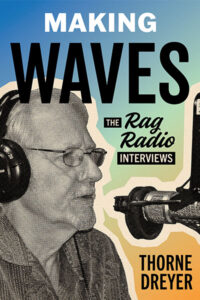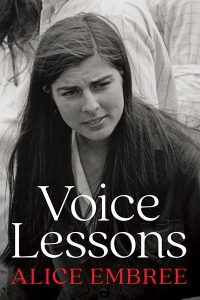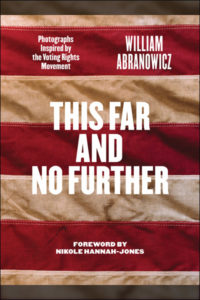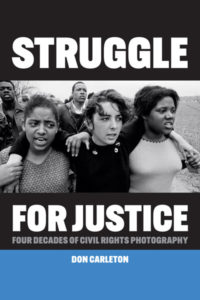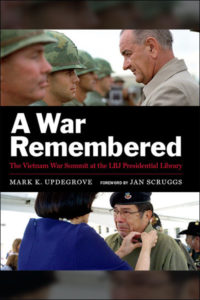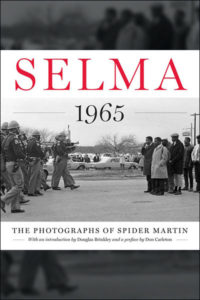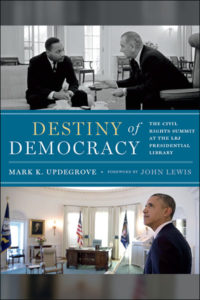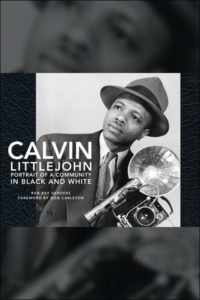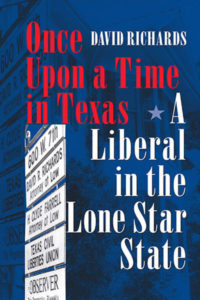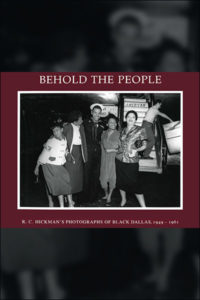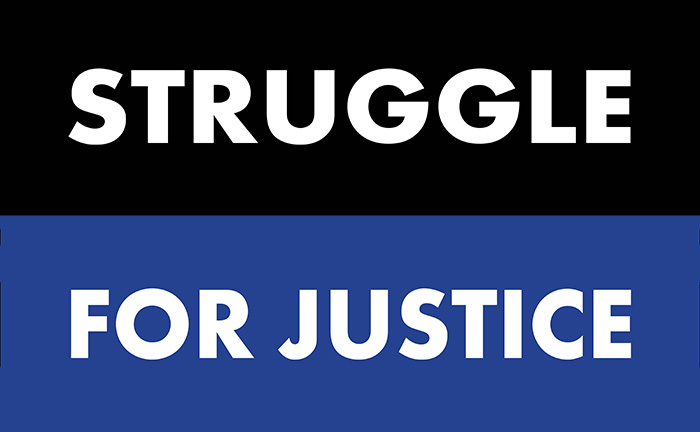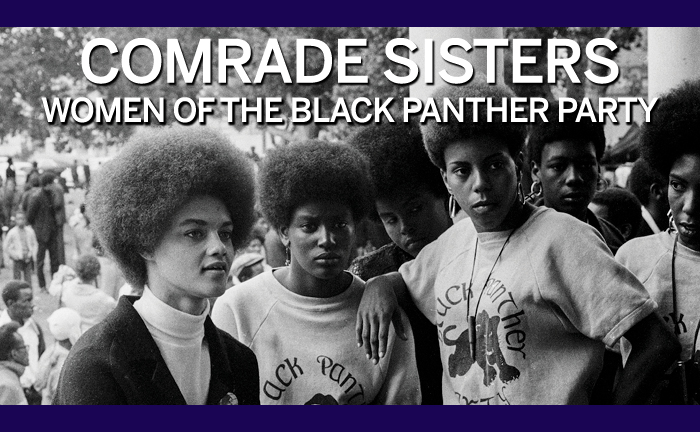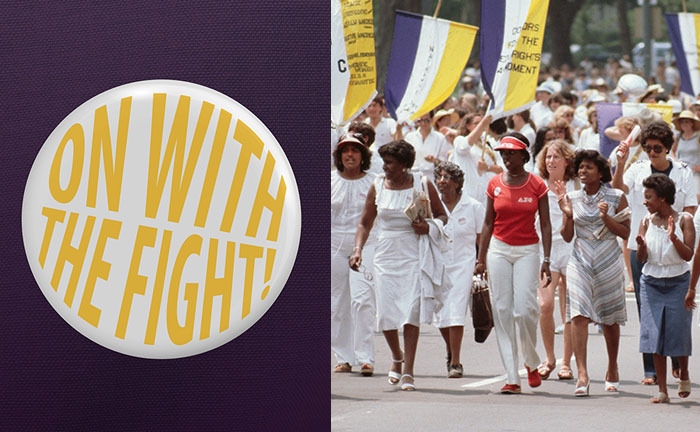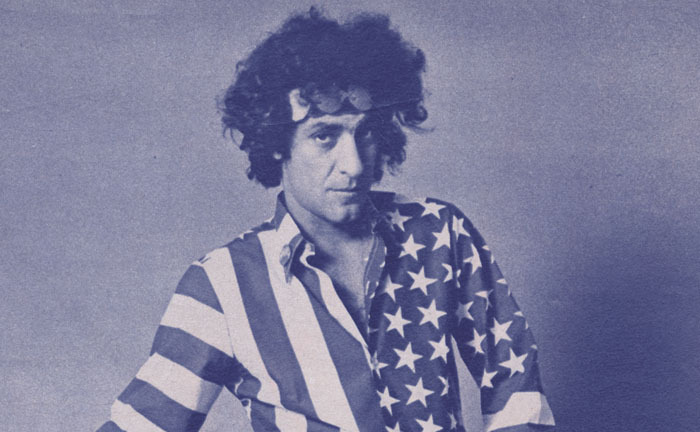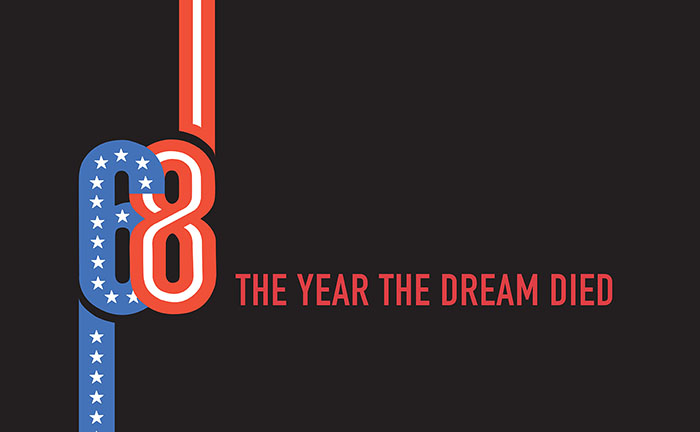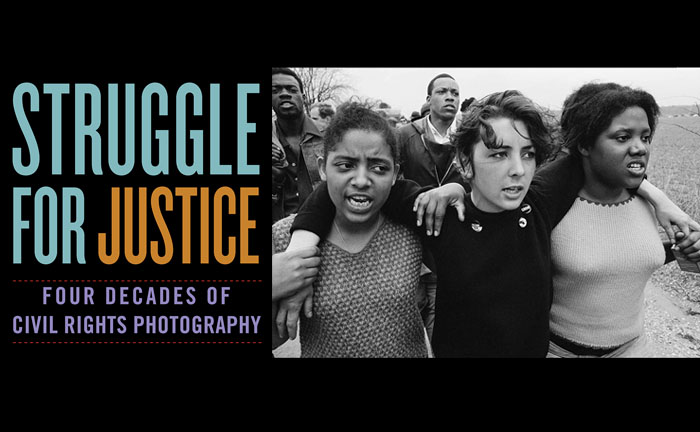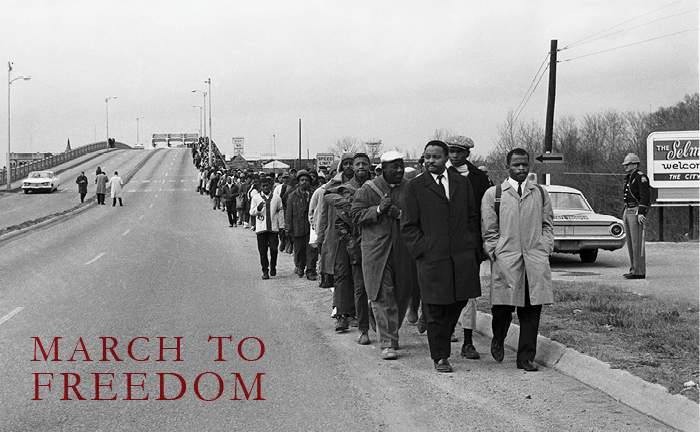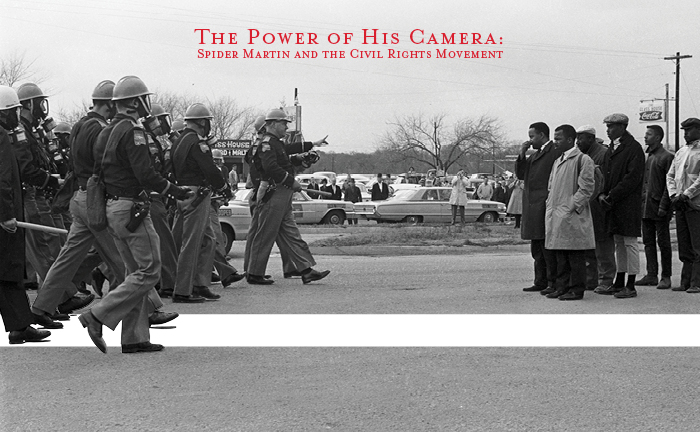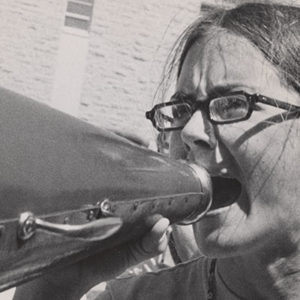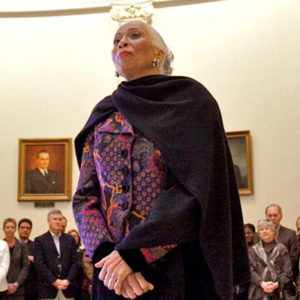The center’s resources include a wide range of materials relating to civil rights, labor organization, anti-war protest, criminal justice and prison reform, LGBTQIA+ rights, women’s rights, and environmental activism. The archives chronicle groups and individual activists working at the intersections of American history’s major social movements. Primary sources in the social justice collections at the center document the national impact and the day-to-day realities of grassroots organization. They reveal sources of funding for social justice movements, and the injustice and obstacles activists faced in fighting for change.
Notable collections include the James Leonard Jr. and Lula Peterson Farmer Papers, Juanita Jewel Shanks Craft Papers, Alice Embree Papers, Field Foundation Archives, J. R. Parten Papers, Thorne Dreyer Papers, Students for a Democratic Society Records, Abbie Hoffman Papers, and Ruthe Winegarten Papers, among many others. These collections complement the records in multiple photojournalism archives and in the Briscoe Center’s legislative collections.
The interrelated and allied movements for social change represented in the Briscoe Center’s civil rights and social justice collections provide scholars with a comprehensive view of social change as it played out across the nation, especially from the 1950s through the ’70s—the major period for civil rights agitation. Together, the collections portray in detail how individuals and organizations engaged several generations of Americans and employed free speech, the courts, legislation, and other public forums to redress centuries-old wrongs. In the process, they reveal the challenging and complex campaigns that American activists have undertaken in pursuit of their causes.
James and Lula P. Farmer Papers

On May 27, 1961, from the county jail in Jackson, Mississippi, civil rights leader James Farmer wrote to his wife, Lula: “I hate being away from you, but I know you agree the fight is a right one! I’ve never been so confident of ultimate victory as I am now. . . . Tell Tami that Daddy is in jail for her sake, for he loves her. And I love you, Jim.” Farmer had been jailed for daring to test the 1960 decision in Boynton v. Virginia, in which the Supreme Court struck down segregation in interstate travel. The historic Freedom Rides that Farmer had launched in the South with twelve black and white colleagues in May 1961 reverberated throughout the growing civil rights movement. In November 1961, the Interstate Commerce Commission ruled that segregated transportation facilities were illegal.
Farmer’s historic letter is found in the James and Lula P. Farmer Papers, the cornerstone of the vast civil rights and social justice collections at the Briscoe Center for American History. The papers recount Farmer’s co-founding of the major civil rights organization Congress of Racial Equality, as well as the roles that he and the congress played in every significant campaign of the civil rights movement, from Brown v. Board of Education to the Montgomery, Alabama, bus boycott, from sit-ins to the 1963 march on Washington. Featuring extensive correspondence, financial records, sound recordings, and documents of three other civil rights organizations that Farmer founded, the papers reveal the important methods and strategies used during the nation’s turbulent march toward equality.
The Farmer Papers are complemented by numerous other archives that offer primary sources for research about the movements, leaders, and activists who led the struggle for social justice in the nation. Chief among those materials are five significant collections spanning several decades, hundreds of topics, and thousands of items.
C. Wright Mills Papers
The C. Wright Mills Papers (1934–65) document the work of one of the foremost twentieth-century experts on the role of social class and power in American life. Mills, a University of Texas alumnus, sociologist, and champion of social change, was the author of some of the most influential sociological studies of American culture, including White Collar: The American Middle Classes (1951), The Power Elite (1956), and The Sociological Imagination (1959). The Mills Papers include annotated drafts and typescripts of his major works, statistical data regarding his theories, classroom teaching materials, and numerous newspaper and magazine clippings related to his work.
John Henry Faulk

The struggle of another alumnus, humorist John Henry Faulk, against blacklisting in the entertainment industry during the 1950s is documented in the John Henry Faulk v. AWARE, Inc., Laurence A. Johnson, and Vincent Hartnett Case Records (1939–82). The documents detail the allegations of subversive activities that AWARE (a media watchdog group) lodged against Faulk, as well as a thorough accounting of Faulk’s suit for libel, which, with star attorney Louis Nizer, he finally won in 1962. CBS Television later produced a film about Faulk’s ordeal, based on his book Fear on Trial. The documents include research materials and notes, pleadings, television scripts, bulletins, and other materials. Though Faulk never collected damages from the bankrupt defendants, and never fully regained his sidetracked television career, his victory in the AWARE case helped to end political harassment and blacklisting in the American entertainment industry.
Field Foundation Archives (1940–90)

The Field Foundation Archives (1940–90) are a key source for understanding how civil rights groups financed their work. Chicago banker and publisher Marshall Field III established the foundation in 1940 to support organizations that promoted civil rights, civil liberties, and child welfare, as well as individuals and organizations that were working for social change. In its fifty years of activity, the Field Foundation provided major assistance to the National Association for the Advancement of Colored People (NAACP), the Southern Christian Leadership Conference, the Children’s Defense Fund, the Mexican American Legal Defense Fund, the American Friends Service Committee, and many others. The Field Archives offer insight into the inner workings of both the Field Foundation and the groups it assisted.
Flip Schulke Photographic Archive

Through his close friendship with Dr. Martin Luther King Jr., Flip Schulke became known as one of the leading chroniclers of the Southern civil rights movement. King granted Schulke unlimited access to both his personal life and major civil rights events in the South, and Schulke covered almost every major civil rights story from the 1950s until King’s assassination in 1968. The images include those of James Meredith integrating the University of Mississippi in 1962 and the Selma, Alabama, campaign, as well as countless photographs of blacks and whites protesting against racism throughout the region. In 1986, Schulke received the first New York State Martin Luther King Jr. Medal from Governor Mario Cuomo, and in 1995 he was presented the Crystal Eagle Award from the National Press Photographers Association for his lifelong documentation of the civil rights movement. Many other photographic archives at the center document protest, activism and civil rights—combining to form a rich visual heritage of Americans working together to seek justice.
Abbie Hoffman Papers
![Abbie Hoffman—HUAC [House Un-American Activities Committee], October 1968. Wally McNamee Photographic Archive. e_wm_0143](https://live-briscoe-v2.pantheonsite.io/wp-content/uploads/2020/10/e_wm_3V122_f15_0143.jpg)
Political provocateur, charismatic protestor, counterculture icon: Abbie Hoffman (1936–1989) is known for a brand of activism that used theatricality, irreverent humor, and seemingly spontaneous actions to raise awareness and rally support for a wide range of anti-establishment causes. Hoffman’s archive reveals the deep political and social engagement behind his notoriety and the planning behind his writing, protests, and actions.
Hoffman began activist work with the Student Nonviolent Coordinating Committee (SNCC) as part of the civil rights movement in the early 1960s. After forming the Youth International Party (or Yippies), he began staging the protests for which he is most known. Hoffman attained national fame after the 1968 Democratic National Convention in Chicago, where mass protests were met with police riots. His arrest and subsequent trial as part of the “Chicago 7” made him a household name.
The Abbie Hoffman archive encompasses his childhood and college education, the events of 1968, his time underground in the 1970s, and his activism for environmental causes in the 1970s and ‘80s. Drafts of radio programs, speeches, and letters show careful development of language whose final form might appear spontaneous or casual, but which he refined with specific and persuasive aims. The archive also illuminates Hoffman’s connections, correspondence, supporters, and his work with those who agreed (and sometimes, disagreed) with his goals.
Thorne Dreyer Papers
The Thorne Dreyer Papers (2009-2019) document the work of a veteran editor, writer, and political activist. A Houston native who attended the University of Texas at Austin, Dreyer played a major role in the underground press movement of the 1960s-1970s. He was active in Students for a Democratic Society and founded two underground newspapers: The Rag, in Austin, Texas (1966-1977) and Space City! in Houston, Texas (1969-1972). He continues to host The Rag Radio, a weekly public affairs news program on community radio station KOOP in Austin, Texas. The Dreyer papers consist mostly of radio interview transcripts from Rag Radiobroadcasts. Interviewees have included Tom Hayden, Roxanne Dunbar-Ortiz, Ronnie Dugger, Paul Krassner, Kaye Northcott, and Bernie Sanders.
Sara Clark Social Justice Collection
The Sara Clark Social Justice Collection reflects the various efforts of activists, critics, reformers, and intellectuals to change society. The collection is named in memory of Sara Clark, an archivist at the Briscoe Center and a social activist who was responsible for bringing those items to the center.
Criminal Justice System

The papers and archives concerning Frances Jalet-Cruz, Lawrence Pope, the Ruiz Case Office of Special Master, Citizens United for the Rehabilitation of Errants, and the Texas Resource Center provide researchers with insights into the history of criminal justice. The Frances Jalet-Cruz Papers (1966–86) reveal the human dimensions of prison reform through the experience of Texas inmate Fred Arispe Cruz. Numerous documents in Cruz’s own hand tell the story of his incarceration from 1961 until his release in 1972. The legal battles between Cruz and state prison officials eventually discredited many prison policies and the experience lifted Cruz from a fate as a troublemaker to a respected reformer of the prison system. The Jalet-Cruz Papers illustrate how Cruz, with the aid of his attorney (and future wife), Frances Jalet, helped to forge the necessary legal environment to usher in the most comprehensive prison reform ever carried out in modern Texas history.
The papers of Lawrence Pope, a former banker who was imprisoned in both the federal and state penitentiaries for bank robbery during the 1960s and ’70s, document the conditions that he experienced and observed during his imprisonment.
A self-taught “jailhouse lawyer,” Pope gathered documentation on many aspects of the criminal justice system. His papers include correspondence, financial records, legal documents, and newspaper clippings that track public hearings, legislation, and decisions by state officials on controversial issues in prison reform, such as AIDS, mental health, parole, prisoner lawsuits, overcrowding, violence, and racism. The papers also contain abundant information about the general operations of the Texas Department of Criminal Justice. Accompanying the papers is a comprehensive oral history that was conducted by the Briscoe Center.
In His Own Words
The thoroughness of his documentation and his articulate description of prison conditions made Lawrence Pope, along with Fred Cruz, an important component of the landmark Ruiz v. Estelle prison reform case of the 1970s. In Ruiz v. Estelle, Federal Judge William Wayne Justice found that many practices in the Texas prison system violated the rights of prisoners, and he ordered the state of Texas to conduct sweeping reforms of its prison operations. He created the Office of Special Master to oversee implementation of his rulings, and upon his retirement, he ordered that the records of that office be sent to the Briscoe Center, where they joined the center’s growing resources in the field of criminal justice. The extensive files, which document the Ruiz case between 1979 and 1992, consist of 222 linear feet of correspondence, pleadings, motions, and plans that are of prime interest to legal scholars and historians.
The center’s social justice collections also include the archive of Citizens United for the Rehabilitation of Errants (CURE), an organization that was founded to reform the criminal justice system. Established by Charles and Pauline Sullivan in San Antonio in 1972, CURE became a national organization in 1985. The records contain legal documents, photographs, correspondence, and newsletters detailing the organization’s efforts to promote reforms, including alternative incarceration for inmates and abolition of the death penalty.
Another massive criminal justice archive came to the Briscoe Center in the mid-1990s when the Texas Resource Center closed its operations. The center was a federal grant funded agency that provided pro-bono legal services to defendants in capital murder cases. Some 900 linear feet of trial transcripts, exhibits, pleadings, and additional documentation make the center’s records a vital resource for attorneys, journalists, and historians.
Activism and Social Change

Further holdings in the Sara Clark Social Justice Collection include the Woman’s Commonwealth Archive. Led by Martha McWhirter, the Woman’s Commonwealth was established in the 1860s in Belton, Texas, and later moved to Washington, D.C. The archive documents the financial success of the group members, who lived apart from their husbands and supported themselves by operating a hotel, selling eggs and dairy products, and acquiring property, including three farms. Legal and financial records, correspondence, printed materials, and photographs all document the commonwealth’s development and activities over its long history, and they attest to the respect that the women ultimately earned from the townspeople of Belton.

The Lesbian Issues Collection includes newsletters, correspondence, and magazines such as Amazon Quarterly, Moonstorm, and Black Belt Woman. The Texas Human Rights Foundation Records, Texas Lesbian Conference Records, Lesbian-Gay Rights Lobby of Texas Records, and Waterloo Counseling Center Records all further document efforts to ensure equal rights for the LGBTQIA+ community in contemporary society.
The women’s rights movement is detailed in the Austin Women’s Suffrage Association Records and the Carothers G. Berger Papers and Frieda Werden Papers, both of which address feminist issues in literature, the arts, religion, and other areas. Along with several other collections, they offer primary resources for studying women’s efforts to obtain voting rights and equality in the workplace, embrace feminist spirituality, and participate in women’s scholarly organizations. The documents offer an examination of how organizations like the National Association for Women have brought significant attention to women’s rights.

The collection also features materials on socialism, anti-capitalism, and other social movements. The Mariann Wizard and George Vizard Papers document Mariann’s association with Students for a Democratic Society and the Communist Party in the 1960s. The Bread and Roses School for Socialist Education Archive documents the school’s mission to explore alternatives to capitalism, and the People’s History in Texas Records (1976– 2005) contains some 44 linear feet of materials that encompass a wide variety of topics, including hunger in America, workers’ rights, environmental protection, police brutality, and prison reform. Finally, the Sara Clark Collection features a complete run of the Rag, an “underground” newspaper that was published in Austin from 1966 to 1977 by activist journalists who were committed to progressive social change.
Adapted from The Collections: The University of Texas at Austin, 2015. Updated 2020.
Our collections inspire our own projects, including books, exhibits, programs, films, and educational materials.
Banner image: Young NAACP members protesting at the Texas State Fair in Dallas, Texas, October 17, 1955. Photo by R. C. Hickman. R. C. Hickman Photographic Archive. Image detail from e_rch_0376.


